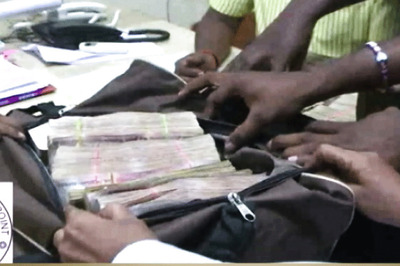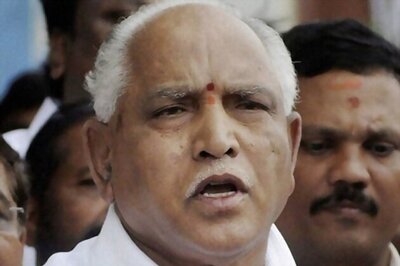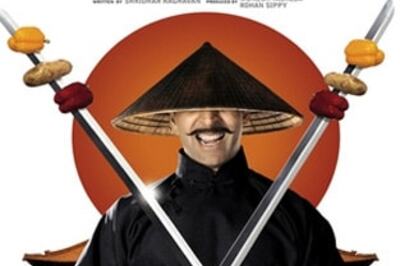
views
London: As Britain's most powerful Sunday newspaper crashes and burns, newsrooms across London are feeling the heat.
Media watchers and former journalists say the practices that felled the News of the World were common across the industry in Britain. With 200 tabloid journalists out of work, two people sentenced to jail, and a former editor-in-chief under arrest, those behind the headlines are wondering whether they'll soon be in them.
"It's a warning for Fleet Street," public relations guru Max Clifford said Friday, using the nickname for the national newspaper industry. "A lot of journalists were up to similar things for many, many years."
Clifford should know. Besides being one of the nation's best-connected media operators, he was also among the tabloid phone hacking scandal's most prominent victims.
It was his hefty settlement with the News of the World - a reported $1.6 million (1 million pounds) - that whet other lawyers' appetites for suing the paper over the practice. That litigation turned up revelations so damaging they proved fatal.
Newsrooms across the country are waiting to see if their publication could be next. Prime Minister David Cameron hinted more heads would roll, saying at a hastily called news conference that there had been "some illegal and utterly unacceptable practices at the News of the World and possibly elsewhere."
Within hours, Scotland Yard was at the central London offices of the Daily Star Sunday - a downmarket tabloid with a circulation of about 300,000. They walked away with a disc full of computer material relating to Clive Goodman, the former News of the World journalist who served a jail term in 2007 for hacking into the phones of royal aides, setting the scandal in motion.
Goodman was arrested again Friday, this time over allegations he bribed police for scoops. Former News of the World Editor and Downing Street insider Andy Coulson was also taken into custody. Both were released on bail.
The Daily Star Sunday said in a statement that it had never carried "any story that might have stemmed from phone hacking."
But the cloud of suspicion hangs heavily over many tabloids.
Fleet Street reporters have long been known for stopping at almost nothing to score a scoop, whether it be rooting through trash cans, fast-talking their way past police or handing out checks for hard-to-get interviews.
In one celebrated case, the Daily Mirror - once edited by CNN star Piers Morgan - sent a reporter undercover to work at Buckingham Palace.
In another, News of the World reporter Mazhar Mahmood, posing as a Middle Eastern potentate dubbed the "Fake Sheik," tricked scores of prominent figures, including sports stars and royalty, into embarrassing indiscretions.
These included getting Princess Michael of Kent to vent some sensational opinions, including an assertion in 2005 that Princess Diana was "bitter" and "nasty." In 2001, the Fake Sheik drew indiscreet comments from Sophie, Duchess of Wessex, the wife of Prince Edward, that ended her public relations career.
Some of these methods raised ethical concerns; others were unambiguously illegal.
One particularly well-worn weapon in the tabloid arsenal was payoffs for confidential personal information, often obtained from shady private detectives like Glenn Mulcaire, Goodman's partner in the phone-hacking campaign who also served jail time.
A 2006 report by the British Information Commissioner's Office said its investigation of another detective identified 305 journalists at 31 publications involved in the illegal trade of personal information - including some taken from national police databases or the U.K. vehicle licensing agency.
"Newspapers were continuing to subscribe to an undercover economy devoted to obtaining a wealth of personal information forbidden to them by law," the report warned.
Phone hacking was widespread too, according to former journalists, although some observers say that tabloids pulled back from their extreme practices after Goodman's first arrest in 2006.
Paul McMullan, a former News of the World journalist and freelancer, told actor Hugh Grant that other papers, including the popular Daily Mail, hacked phones to get stories.
"They were as dirty as anyone," he said. "They had the most money." Grant, taking a page from the newspapers' playbook, surreptitiously recorded and published the comments.
In a statement, the Mail said its journalists obeyed the law, but declined to give details of past behavior.
Sharon Marshall, another former tabloid journalist, told The New York Times last year that phone hacking occurred everywhere in Britain. "It was an industrywide thing," she said.
Marshall, through a publicist, declined to be interviewed by the AP. Her 2010 book, "Tabloid Girl," goes some way toward explaining why journalists might find phone hacking tempting.
In the book, she describes a newsroom culture rife with booze, drugs, expletive-filled shouting matches and faked expense payments to inflate journalists' salaries.
It was a world where one reporter donned a white lab coat and sneaked into a hospital to snap a picture of a comatose celebrity and another jumped a police cordon to gather material on an accident.
Marshall herself claims to have virtually kidnapped the late British reality television star Jade Goody in a bid to keep her exclusive fresh.
"Knowing that over 4 million people could be reading your words that day is why you do it," she wrote. "It's a brilliant feeling of power, of being right at the epicenter of gossip."
The News of the World called the book "a rip-roaring account" and gave it four stars.



















Comments
0 comment